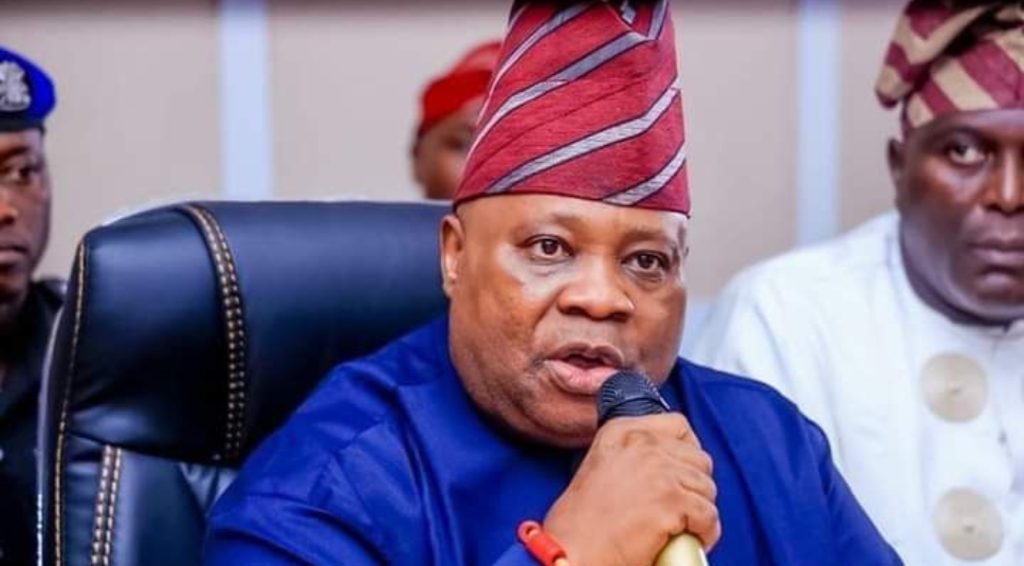The peaceful town of Esa Oke in Osun State, Nigeria, was recently thrown into turmoil following the appointment of Prince Oluyemi Ajayi as the Olojudo of Ido Ajegunle, a community located within Esa Oke. The appointment, perceived by the Esa Oke community as an imposition of a non-indigene as their monarch, sparked violent protests and clashes, leading to loss of lives and property damage. The Esa-Oke Central Union, a representative body of the community, vehemently rejected the appointment, arguing that Ajayi, a native of Ilesha, has no ancestral ties to the land or the community, thereby violating their traditional and historical jurisdiction. They called for the immediate reversal of the government white paper that endorsed the appointment, emphasizing that this action is crucial to restoring peace and preventing further escalation of the conflict.
Adding fuel to the fire, conflicting reports emerged regarding the violence that engulfed the town. The Esa-Oke Central Union accused individuals disguised as police officers of invading the town, shooting dead four residents and injuring several others. However, the state police command refuted these claims, stating that seven of their officers were shot and injured by unidentified assailants while en route to quell the unrest. This discrepancy in accounts further exacerbated the tension and fueled mistrust between the community and law enforcement. The clashing narratives underscore the need for a thorough and impartial investigation to determine the true sequence of events and hold those responsible for the violence accountable.
Governor Ademola Adeleke, in a bid to restore calm and address the root causes of the crisis, visited Esa Oke and held a peace meeting with community leaders, including the Owamiran of Esa Oke, Oba Adeyemi Adediran, and the Speaker of the state House of Assembly. He expressed his commitment to uncovering the truth and bringing the perpetrators to justice, regardless of their status. While acknowledging the unfortunate events, including the damage to the palace and shops, the governor stressed the importance of peaceful dialogue and urged residents to cooperate in restoring peace. He assured the community that a panel of inquiry would be established to investigate the root causes of the crisis and prevent future occurrences.
The governor’s visit and his commitment to setting up a panel of inquiry offered a glimmer of hope for a peaceful resolution. He appealed to aggrieved parties to submit their petitions, promising to act justly on them. He also resisted calls to impose a curfew, emphasizing his belief in the inherent peacefulness of the Esa-Oke community. The governor’s proactive engagement and his assurance of a fair investigation were vital steps toward de-escalating the situation and rebuilding trust between the government and the community.
The central issue remained the appointment of Prince Ajayi, which continued to be a major source of contention. The Esa-Oke community maintained their firm stance against the appointment, highlighting the lack of consultation and the disregard for their traditional customs. Yinusa Bamigboye, the Chairman of the Esa-Oke Central Union, reiterated their demand for the reversal of the appointment, stressing the importance of respecting their traditional leadership structures and historical jurisdiction. The community’s plea for the unconditional release of individuals arrested during the crisis further underscored the need for a just and transparent process in addressing the aftermath of the violence.
The events in Esa Oke highlight the delicate balance between government authority and traditional customs, particularly in matters of chieftaincy. The imposition of a leader without the consent and acceptance of the community can lead to social unrest and undermine the very fabric of traditional governance. The situation calls for a sensitive approach that respects the cultural heritage and the right of communities to self-determination. The establishment of the panel of inquiry is a crucial step in addressing the immediate concerns and working towards a long-term solution that respects both the legal framework and the deeply held traditions of the Esa Oke community. The panel’s investigation must be thorough, impartial, and transparent, ensuring accountability for the violence and addressing the underlying grievances that fueled the conflict. Only through a comprehensive and inclusive process can lasting peace and reconciliation be achieved in Esa Oke.


